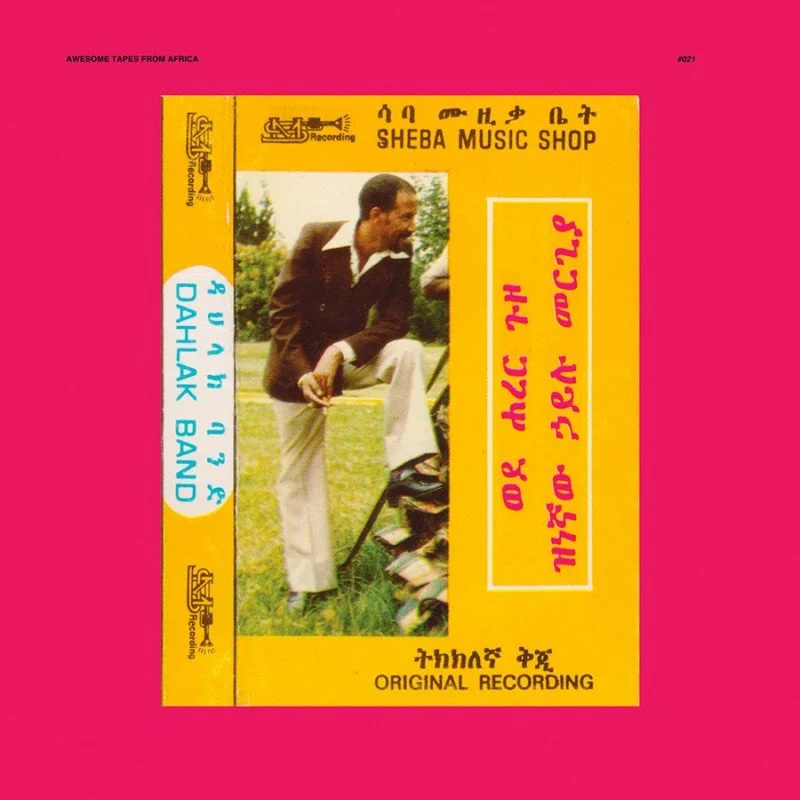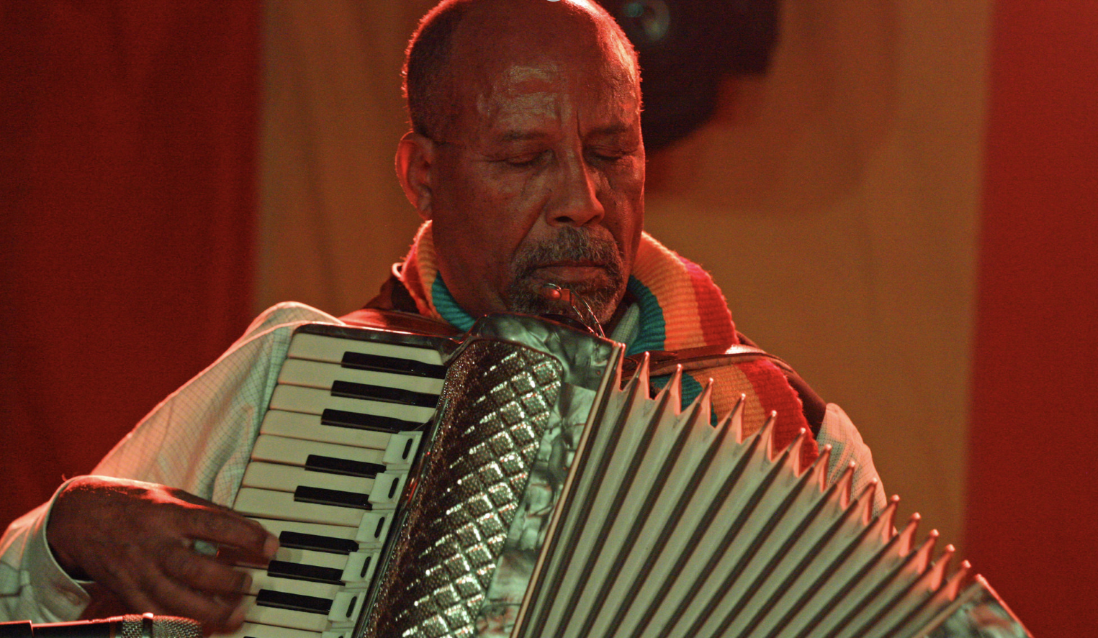Wede Harer Guzo at 45: Hailu Mergia’s Reemergence
By Lara Thain
It’s the ‘70s, and The Derg rule Ethiopia. Censorship is rampant and there’s a curfew stopping civilians from going outside after 11 pm. This means that the Walias Band will play all through the night for guests stuck in the Hilton Hotel in Addis Ababa. With sparse lyrics, the jazz music the band plays cleverly evades any censorship issues by The Derg. In 1975, Walias Band releases their first album, Tezeta. As a side project, a member of Walias Band, Hailu Mergia, joins Dahlak Band and records the cassette-only album, Wede Harer Guzo.
Nearly 45 years after its first release, Wede Harer Guzo remains uniquely individual with a sound that leaves listeners craving more. From the upbeat sound of “Sintayehu” to the relaxing beat of “Migibima Moltual”, Wede Harer Guzo allows the listener to experience variety while still maintaining the same passion in each song. It isn’t hard to tell why Hailu Mergia was a hit in expensive hotels. Wede Harer Guzo relaxes, but it does not bore, allowing each song to feel like a sort of yearning; creating a sound that is optimistic but not overwhelming to the senses. The sound of Hailu Mergia’s organ is unbeatable and key to the album. For these reasons, it is easy to see why Hailu Mergia was so prominent during and directly after The Ethiopian Golden Age of Music. Mergia’s synth sound is distinctive in every record that he has recorded and is inspired by its pure originality. Wede Harer Guzo packs a punch at just over an hour across ten songs. Each song seems to take you on a journey of its, culminating in the striking song “Minlbelesh” with its intermittent use of trumpet and tasteful use of electric piano and organ.
In 1981, Walias Band makes the long journey to the United States and goes on tour with Mahmoud Ahmed. Hailu Mergia never returns to Ethiopia. In 1998, Mergia starts driving a taxi in Washington, D.C., between fairs he takes his keyboard and sits in the back seat of his cab practicing. Not much is heard from Mergia until 2013, when Brian Shimkovitz is taking a trip to Euthopia and finds an old cassette of Mergia’s and falls in love. Shimkovitz scours the internet to find Mergia’s contact information and asks to start rereleasing Mergia’s music to be enjoyed by a wider audience. No longer are Mergia’s albums confined to cassettes, but they are now available on major streaming services, allowing them to be enjoyed in homes across the globe, not just in Ethiopia and niche circles in America. This new audience allows Mergia to release Lala Belu in 2018 and Yene Mircha in 2020, the first music that he’s released in decades.
Even without this recent reemergence, Mergia’s impact on the music scene in Ethiopia is still prominent. Walias Band made a huge impact on Ethiopian nightlife, performing in various nightclubs in Addis Ababa before gaining their residency at the Hilton. It was during this time that they recorded “Musicawi Silt” on the album Tche Belew, arguably one of the most popular Ethiopian jazz songs worldwide. This song threw Mergia and the rest of Walias into relative stardom in Ethiopia to this day.
If not for a chance encounter by Shimkovitz, Mergia would most likely still be playing the keyboard in the back of his cab without releasing any music and he would not have gained the cult following that he has today. Since the rerelease of his music, Mergia has played live concerts across the globe to a new generation who have fallen in love with his synth sound.


